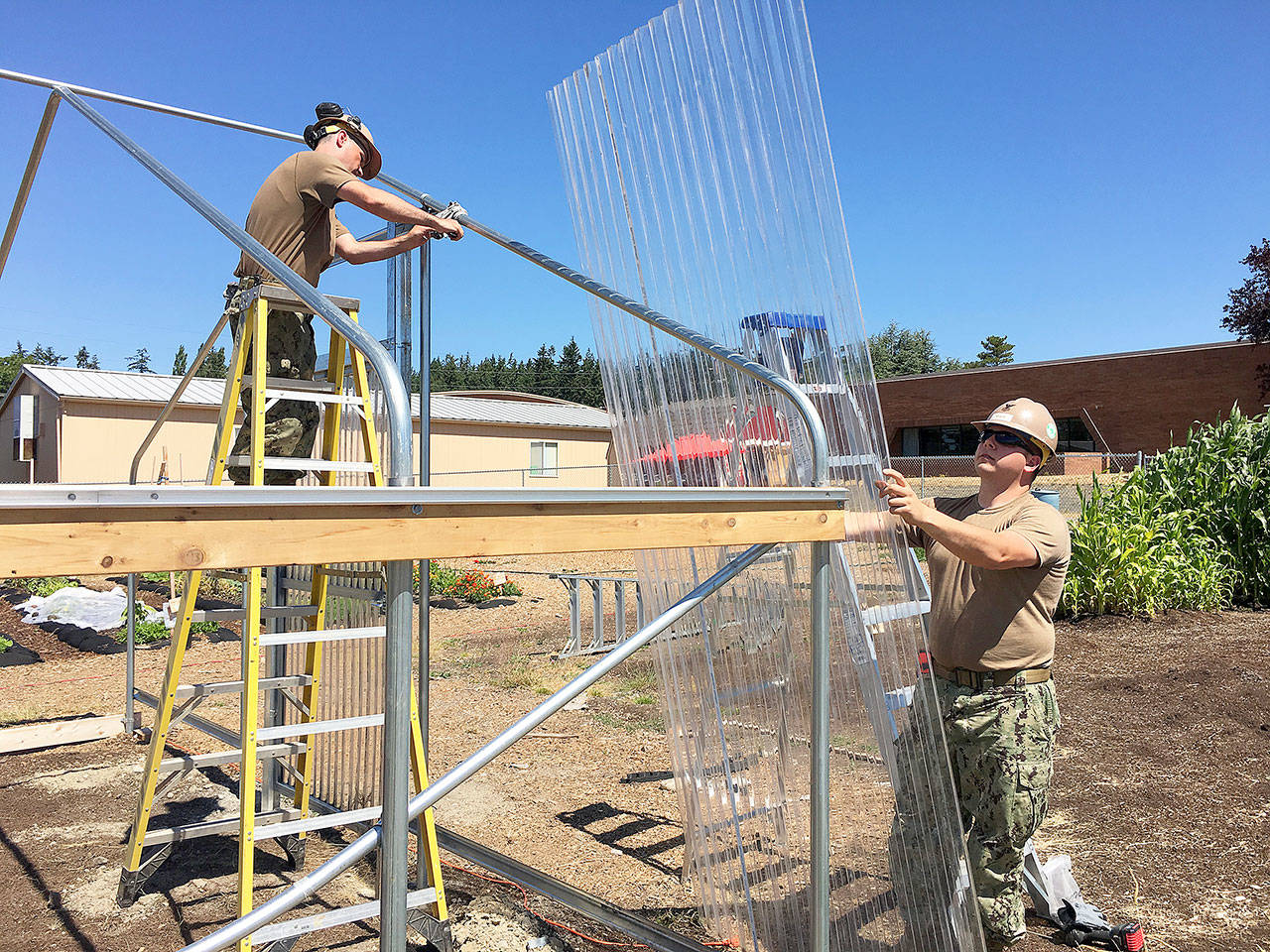Naval engineers turned out Monday to help build a greenhouse for Crescent Harbor Elementary School’s garden.
The greenhouse’s design is called a “hoop house” because it is constructed by a series of metallic hoops with greenhouse plastic stretched across.
The hoop house came in the form of a $5,000 kit, which Soroptimist International of Oak Harbor gave through a grant, said Anza Muenchow, SNAP Ed coordinator for the Washington State University Island County Extension.
The engineers, who are part of the Naval Engineers Command North West, or Seabees, volunteer with the Island County public works department Self Help group.
They donated their time and talents to construct the kit, ensuring nutrition at the school for years to come.
Petty Officer First class Joseph Puls, the Seabee in charge, descibed his crew as hardworking servants, dedicated to a good cause.
And for some volunteers, the project was something that hit close to home. Petty Officer Jason Lum said that he had kids attending the school.
The Soroptimists and Seabees may have paved the way for Crescent Harbor to receive a hoop house, but master gardener Muenchow and the SNAP Ed grant that affords her are responsible for the garden it sits in.
Muenchow has guided the process of developing school gardens at Crescent Harbor and Olympic View elementary schools, expanding the kinds of fresh food available to low income students.
This access to food is especially important, because to qualify for the grant, each school had to have at least a 50 percent rate for free and reduced lunches among its students, Muenchow said.
“We got a grant last year and are collaborating with the health department,” she said. “We’re encouraging nutrition for low-income families… and my best way to do that for kids is to have them grow it themselves.”
Once the kids get in the garden, Muenchow said, they go wild for the peas and carrots, particularly the carrots.
“I mean, that’s what gets kids excited about vegetables,” Muenchow said. “You can buy them and stick them on a plate and you’ll throw them away at home, but if you’re in the garden, they’re eating stuff.”
That’s why Muenchow is so excited about the hoop house, she said, because with its climate-controlled enviornment, some vegetables can be planted as early as January.
“I encourage (the Seabees) to learn about this kind of agriculture because I think this is the future of our local ag — to have a lot of these hoop houses,” Muenchow said.
“Farmers over here use them a lot, because they extend the season.”



